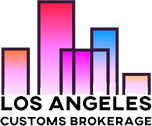



In the simplest definition a Customs Broker releases and enters inbound shipments and arranges payment of duties and taxes on their clients behalf.
Customs Broker was formed in 2019 with this Mission Statement.
When your business involves international trade, your prosperity is dependent on strong partners to lead you through the complexities of customs and logistics.
Read MoreQ: What is a Customs Bond?
A: With the exception of very low value, low risk shipments, Customs requires importers to post bond to protect their enforcement ability.
Q: How do I get a bond?
A: City Business Brokerage can underwrite single entry and continuous bonds
Q: What is a Foreign Trade Zone (FTZ)
A: An FTZ is a geographic area where merchandise can be brought into the country and held without clearing Customs. A specific location where FTZ work is done is called an FTZ site
Q: How can I benefit from an FTZ
A: There are many ways:
Q: How can I use a Foreign Trade Zone to store my product?
A:You can utilize a public warehouse setup as an FTZ or you can set your own warehouse up as an FTZ. City Business assists firms to set their own warehouses up. The process takes about 6 months to setup.
Q. Is there a way to use a Foreign Trade Zone to reduce duty obligations?
A: Yes, a provision exists that allows goods to be imported in to an FTZ, integrated in to a product with a lower duty rate and then removed from the FTZ at the lower duty rate.
Q: If I import goods and then subsequently export them, can I get my duty back?
A: Yes, 99% of your duties paid can be refunded after they are exported. In order to qualify for duty drawback, you must send a proposal to Customs for tracking your eligible duty drawback refunds and have it approved. Then you can file duty drawback claims on all of your exports moving forward.
Q: Can I file duty back on past products that were exported?
A: Yes, you can claim drawback for duties paid on merchandise imported up to 5 years ago.
Q: How long does it take to get my duties back?
A: First you must apply to have a duty drawback program approved. This takes about 3 months. After this is in place, you can file regularly and receive refunds within 60 days of filing claims.
City Business Brokerage works with clients to put Duty Drawback programs together
Q: Are there special duties on producst from China?
A: In 2019, the Trump Administration imposed very high retaliatory duties on most products from China in response to alleged National Security concerns that existed in our trading relationship with China.
Q: How much are these duties?
A: Section 301 duties range between 7.5% and 25% on top of normal duties. Not all products from China are subject to Section 301 duties.
Q. Are there ways to get around paying Section 301 duties? A: If your product can be shipped in quantities with values under $800, duties can be avoided. Also, there are a limited number of exemptions to Section 301 duties that exist. It is challenging to avoid these duties, but if there is a method, City Business can help you to find them
Q: Are there any exemptions for low value shipments?
A: Most shipments with a value under $800 can be entered as a Section 321 or Type 86 entry. This type of entry is used very frequently for E-Commerce sales where the merchandise sale price is less than $800.00.
City Business can provide strategies to utilize the Section 321 entries to reduce your duty burden.
Q: How do you determine a duty rate?
A: Several factors can determine the duty rate. The commodity and its corresponding harmonized tariff number and the country of origin are usually the biggest factors. However, the duty rate can also be affected by other factors including:
City Business can often help you to find compliant methods to reduce your duty
Q: Is it difficult to import?
A: In some cases, it is very simple, in others it is very difficult. City Business Brokerage will always make it as simple as possible.
Q: How Can an Importer Save Duty?
A: Many opportunities exist to save duties, deter duties, or have duties refunded. City Business Brokerage can share a lot of ideas on this topic.
Q: Do you need a license to import?
A: In most cases no, but in some instances, licenses or pre market authorization is required prior to importing. This includes steel, aluminum, medical equipment, food products, and other items.
Q: Does Customs inspect my merchandise prior to release?
A: In most cases no, Customs releases the merchandise using the “Immediate Delivery Process” and auditing occurs after the importer receives their merchandise.
Q: What agencies regulate imports?
A: Customs is responsible for enforcing nearly 500 US Trade Laws on behalf of 47 federal agencies. We call these agencies PGAs or Participating Government Agencies. A few of these agencies and their missions are as follows:
City Business will guide you to assure you are compliant with any PGAs that happen to regulate your product.
Q: What is an ISF
A: Import Security Filing is a submission of information that is used by Homeland Security to identify cargo shipments that may be a potential risk upon their arrival to the United States.
Q: When must ISF be filed
A: A minimum of 24 hours prior to loading on to a vessel destined to the United States. It is good to file at least 72 hours prior to vessel departure to assure your shipment is loaded.
225 E 9th Street, Los Angeles, CA 90015


Very Affordable, professional and helpful service. It was my first time Custom Clearance Services and Peter and Sam was very patient and helpful in clearing my goods for me. His quote was accurate and I had no problems obtaining my goods. Thank you, I would recommend this service to everyone.


Thank you for all of your help Sam. You made this process painless and kept my informed every step of the way and followed up . Its not often you get service like that in USA. You have been very good to deal with and I will be using you again in the future and recommend you for use to my supplier.